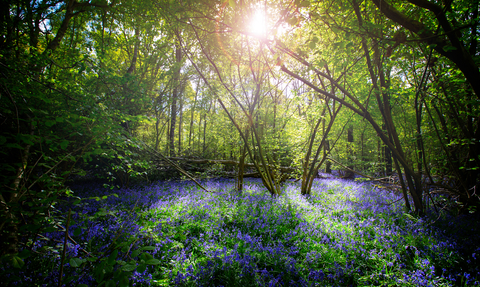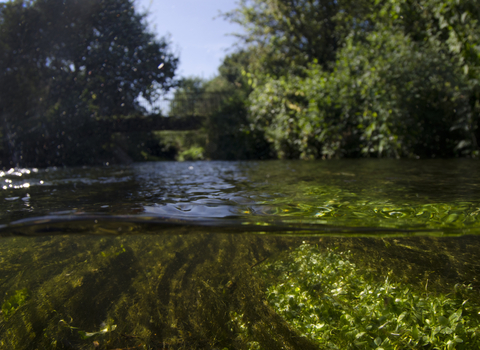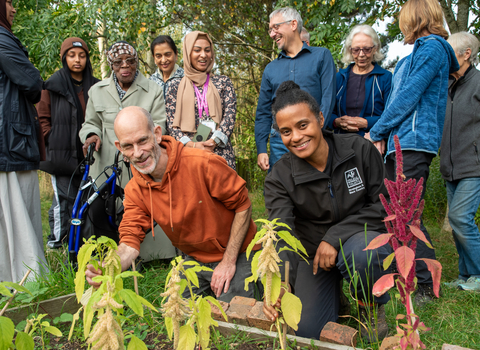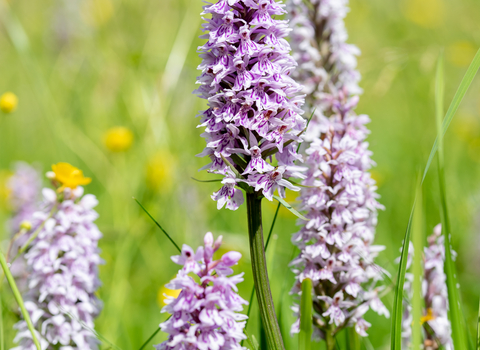
© Jon Hawkins Surrey Hills Photography
Path to 2030: Our Priorities for Nature
Our priorities for the next UK government
Our natural world is in crisis. A shocking 1 in 6 British species are at risk of extinction, our rivers and seas are polluted, and a changing climate brings with it floods, drought and an escalating risk of extreme weather events.
It is a crisis which costs us all. Whether it be the physical damage caused by increased air pollution or the toll on our mental health which comes from a lack of equal access to quality green space, our lack of investment in the natural world is costing the NHS billions of pounds every year.
Birmingham & Black Country Wildlife Trust are calling upon all political parties to act now for people, nature and climate. We’ve set out three key priorities - three things which government must do to help nature’s recovery.

Protect and Clean Up our Rivers
The challenge: The state of our rivers is a national disgrace. The UK is ranked as one of the worst countries in Europe for water quality, with pollution beyond legal limits caused by a toxic cocktail of sewage and agricultural pollution. In 2022 alone, raw sewage was discharged into waterways over 300,000 times. Here in Birmingham and the Black Country, not a single stretch of our rivers – the Cole, the Stour, the Tame, the Smestow Brook and the Rea – is rated as being in good overall health by the Water Framework Directive.
Our rivers are no longer suitable homes for wildlife, they are not fit for people to swim in, and thanks to climate change and growing demand, we are seeing water availability decrease before our eyes. This is a crisis – and one which the public wants to see urgently resolved
How can government achieve this?
- Make polluters pay: Cuts to enforcement agencies and environmental protection budgets over the past decade have left our rivers defenceless against polluters. Environmental watchdogs must be empowered and sufficiently resourced to ensure they can monitor and inspect polluters, and enforce penalties upon those who break the law.
- Halve nutrient pollution by 2030: Sewage, wastewater and agriculture are all suffocating our rivers and the wildlife that depends on them. The public rightly want to see healthy, safe and clean rivers, lakes, wetlands and coasts.
- Invest in nature-based solutions: Nature can be part of the solution. Working to restore our waterways can provide flood risk prevention, reduce pollution, increase biodiversity and benefit the health and wellbeing of local communities.

Put Nature at the Heart of the Community
The challenge: We believe every child should have a wild future, and every community should have nature at its heart. Yet right now in the UK, poor quality living conditions are damaging people's health and cutting lives short. It is the most disadvantaged and the most vulnerable who are bearing the brunt of this situation. More than one third of the population - nearly 9.5 million households in England – are unable to access green places near their home. In Birmingham, approximately 43% of the population live in areas that are ranked in the lowest 10% nationally for available green infrastructure. The current situation is unfair – but it does not have to be like this.
Improving access to natural, wildlife-rich places where we live, learn and work will transform people’s lives, improving health, happiness, and hope across communities, as well as delivering billions of pounds in cost savings to the NHS and creating thousands of jobs.
How can government achieve this:
- Commit to a cross-Government fund to grow community-based health services: ‘Social prescribing’ must be integrated into health and social care services in the community. It makes economic sense and has the potential to deliver improved health and well-being at scale. Independent economic analysis has found that Wildlife Trust's health and wellbeing programmes save the NHS money and cut reliance on their stretched resources.
- Establish a human right to a healthy natural environment: Access to a clean and healthy environment is a basic human right that should be guaranteed through law. Doing this would protect nature, improve people’s physical health, and improve mental wellbeing by reducing feelings of eco-anxiety. Local Authorities should be empowered to work alongside communities, to address inequalities in access to natural spaces in their local areas.
- Outdoor learning for all: Every child has the right to learn in and about nature. Taking learning outdoors benefits children’s mental health and develops a deeper appreciation for the environment and their role in protecting it. Building a lasting connection with nature in childhood shapes our adult lives and attitudes towards wildlife, climate change, and how we choose to live. New statutory guidance to deliver learning outdoors for all can ensure our schools support happier, more confident children who understand their impact on our natural world.

Bring Back our Lost Wildlife
The challenge: Nature is declining at a speed never previously seen and shows no sign of slowing. In Birmingham and the Black Country, 18% of open spaces surveyed in the 1980s have since been lost to development, and between 1980 and 2020 we have seen a 70% decline in records made of the 20 most recorded bird species in our region. It is no longer enough to just protect the wildlife that remains – we need the next UK Government to align across departments to put nature into recovery by the end of the next Parliament.
Nature is vital to us all – for the food we eat, the water we drink, the air we breathe, and the space to help us feel secure, happy, and healthy. In recent years, we have also seen increasing numbers of people actively looking for ways to access nature close to where they live. Without urgent action to bring wildlife back from the brink, communities across the UK risk bearing an unimaginable cost.
How can government achieve this:
- Make more space for nature: To reverse the declines of wildlife, more places are needed for nature. Currently, just 3% of land and 8% of English waters are properly protected for nature – this is nowhere near enough. The next UK Government should launch an Olympic-style cross-government delivery project to protect and restore at least 30% of land and sea for nature by 2030.
- Planning for the future: Nature’s recovery and net zero should be at the heart of the planning system. The integration of high-quality green infrastructure and nature-based solutions into the design of new and existing developments will deliver benefits to both nature and people, and transform our urban landscapes into wildlife havens, enabling them to withstand climate change impacts.
- Halve pesticide use: The catastrophic decline of insects is having a huge effect on the rest of the natural world. Insects are the canaries in the coal mine – their collapse is an alarm bell that must not be ignored. To save the future of insects, and all life that depends on them, the next UK Government must halve pesticide use by 2030 and maintain all bans of bee-killing and human-health-harming neonicotinoids once and for all.
